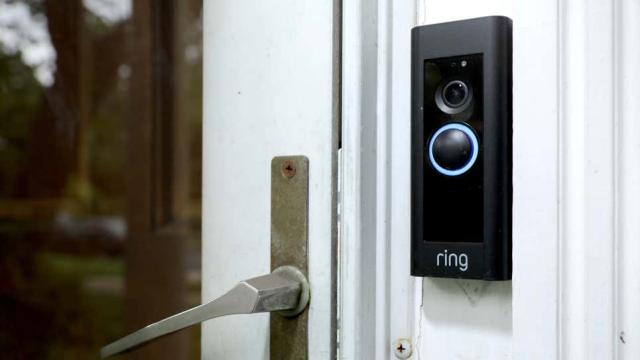A judge in the U.K. has ruled that a man infringed on his neighbour’s privacy by using Amazon’s Ring doorbell without prior consent.
According to The Guardian, Jon Woodard had installed a Ring doorbell camera on the front of his home and another security camera facing the side yard to help deter burglars after a string of car break-ins. However, Woodard failed to disclose the cameras to his neighbour, Dr. Mary Fairhurst. Fairhurst reported being “alarmed and appalled” when she realised Woodard had recordings featuring her and her voice available on his smartphone. Fairhurst eventually moved out of her home after the two had altercations about the cameras.
Judge Melissa Clarke of Oxford county court ruled that Woodard had violated UK General Data Protection Regulation rules and the Data Protection Act of 2018, which states that “owners and residents of domestic premises must be consulted if domestic premises border the intended area to be viewed.” Clarke also ruled that the video and audio captured by the Ring doorbell and cameras were Fairhurst’s data and that the security devices contributed to harassment.
On his part, Woodard maintained his only intention behind installing the cameras was to ward off would-be burglars. His overall fine could be up to £100,000, or nearly $US137,000 (A$184,649).
While this case in the UK isn’t a landmark one, it’s an example of what happens when privacy laws are enforced. It’s hard to imagine a similar ruling being handed down in the U.S., which lacks privacy regulations as comprehensive as the UK or EU, but just as companies were required to change the way they collect cookies to comply with the EU’s GDPR legislation (a change that affected internet users in the U.S.), hardware makers may eventually be required to bake more privacy protections into their home surveillance products.
Amazon told the Guardian that it strongly encourages its customers to respect their neighbour’s privacy and “comply with any applicable laws” when using a Ring product. Ring’s cameras do have privacy settings, like the ability to toggle off sound recording, along with Motion Zones, which lets you select which parts of the camera preview should be considered for recordings.
As a general courtesy, if your cameras are pointed outwards toward someone else’s property — enough that your neighbour’s faces and car licence plates are occasionally in the frame — you should let them know. Although the whole point of these cameras is to help you see people who are in the vicinity of your house. Maybe they’re criminals, but usually they’re just your neighbours. In this age of surveillance, security cams turn everyone into a potential suspect.
